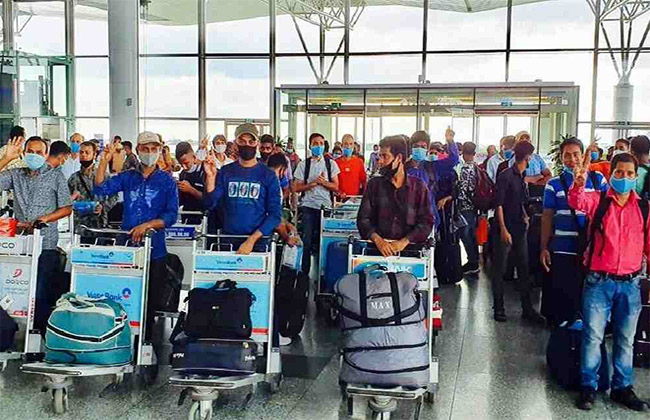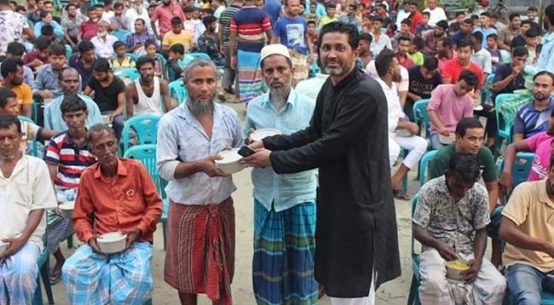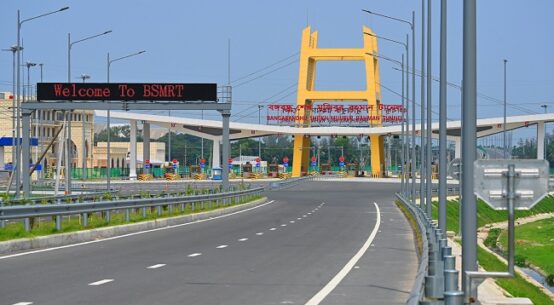
The International Organization for Migration (IOM) has appreciated Bangladesh’s overall migration management and gradual prevention of irregular migration enabling regular migration.
“On migration management, Bangladesh is really a champion. There is quite a big that your government has done….fair enough to say very strong on migration management,” said Deputy Director General of IOM Ugochi Daniels while responding to a question from UNB on Tuesday.
During a small group media briefing at a city hotel, Daniels appreciated bilateral agreements on workers recruitment which will help prevent irregular migration.
She laid emphasis on continued efforts to address the root causes – access to education, healthcare and access to livelihoods – and make people well-prepared with adequate knowledge, skills and requirements – before going abroad. “That is what is going to ultimately end the irregular migration.”
The IOM DDG said Bangladesh has sent more than 13 million Bangladeshi nationals overseas since 1976 to date who have contributed to the national economy through remittances and contribute to their host societies and countries.
Bangladesh sends the 6th most migrants of any country in the world and receives the 8th highest remittances.
She highlights that, to date, IOM Bangladesh has provided return and reintegration assistance to more than 130,000 Bangladeshi migrants while positively impacting the lives of over 16 million people in Bangladesh through assistance, knowledge transfer and information on safe immigration and reintegration since 2015.
Daniels stressed that IOM continues to support the government of Bangladesh to view migration as a positive and beneficial phenomenon, holistically and strategically. Increasingly this support is framed in the context of the Global Compact for Migration for Safe, Orderly and Regular Migration (GCM) – which Bangladesh is a ‘Champion Country’ of.
She assures that IOM is committed to assist the government of Bangladesh in leveraging opportunities and addressing challenges across the fields of migration governance and development, border management, migrant protection, migration and displacement data, migration health, migration environment and climate change, and assistance to stranded migrants.
Daniels acknowledged that the government of Bangladesh has this month launched one of the first ever inter-ministerial coordination mechanisms for GCM titled the “Bangladesh Migration Compact Taskforce (BMCT),” and this would be an example to others.
Responding to a question on the Rohingya crisis, she hoped that all the global efforts – operational level and political level – will help end the displacement crises – not just the Rohingya and Myanmar issues.
“There is a whole process in place now which is looking at displacement and what is required to be able to end this displacement,” said the IOM DDG, hoping that the global political leadership will do what is necessary at the political level to end displacement.
Asked about fund flow to the Rohingyas amid crises in other parts of the world, she said, “Yes, the (funding) trend is downward, not specific to the Rohingyas, as they see many emergencies around the world and donors have their priority in response to situations in Afghanistan and Ukraine.
She thanked Bangladesh for its generosity in hosting over a million Rohingyas despite facing its own challenges. The protracted crisis is now entering its fifth year.
The IOM DDG said the government of Bangladesh, locals and the international community have been providing immediate humanitarian assistance from the onset. “The needs are immense and meeting them is dependent on continued support until the Rohingya are able to voluntarily return to Myanmar in a safe and dignified manner.”
She said IOM continues to provide basic daily requirements to the refugees in a highly complex operation; thus, it is imperative for life-saving assistance to continue.


